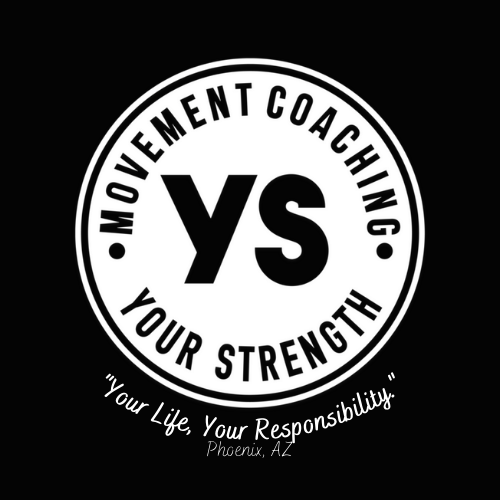When it comes to achieving fitness goals, accountability is one of the most essential ingredients for success. Whether you’re striving to build strength, improve your endurance, or simply maintain a healthy lifestyle, accountability keeps you on track, motivated, and consistent. In this blog, we’ll explore how small group strength classes foster accountability through community, how reaching fitness goals contributes to both longevity and a sense of accomplishment, and the different types of accountability that can help you succeed.
Small Group Strength Classes: Building a Community of Accountability
Small group strength classes provide more than just a workout; they create a sense of belonging and mutual support that keeps participants committed to their fitness journey. Here’s how they help foster accountability:
1. Shared Goals and Camaraderie
When you join a small group class, you’re surrounded by people who often share similar fitness objectives. Whether the goal is to get stronger, improve mobility, or stay active to promote longevity, this shared journey builds camaraderie. You’re not just working out; you’re working together, and that sense of community makes it easier to stay motivated.
2. Encouragement from Peers
The group dynamic is inherently supportive. When you see others pushing themselves to reach their goals, it inspires you to do the same. Celebrating milestones together—whether it’s completing a tough workout or hitting a personal best—reinforces the value of showing up and giving your best effort.
3. A Sense of Belonging
Small group settings transform workouts from a solitary task into a shared experience. Knowing that others notice your presence (or absence) naturally increases your commitment. This level of connection helps you stay consistent, even on days when motivation is low.
Fitness Goals: A Path to Longevity and Fulfillment
Setting and achieving fitness goals isn’t just about the numbers on a scale or the weights on a barbell; it’s about improving your quality of life. Here’s how reaching those goals impacts longevity and creates a profound sense of accomplishment:
1. Fitness for Longevity
Strength training is a cornerstone of long-term health. It helps preserve muscle mass, maintain bone density, and improve physical resilience—all critical factors for aging gracefully and staying active well into your later years. Regular strength training reduces the risk of chronic conditions like osteoporosis, diabetes, and heart disease, making it an essential part of a life focused on longevity.
2. The Joy of Accomplishment
Setting and reaching fitness goals provides a tangible sense of achievement. Whether it’s lifting a heavier weight, running a faster mile, or mastering a challenging movement, every milestone builds confidence and reinforces your belief in what you’re capable of achieving. Success in fitness often creates a ripple effect, boosting self-esteem and inspiring you to tackle challenges in other areas of life.
3. Momentum for Lifelong Wellness
Accomplishing fitness goals doesn’t just provide short-term benefits. It creates momentum that carries over into other healthy habits, such as improved nutrition, better sleep, and stress management. Over time, these habits form the foundation for a longer, healthier, and more fulfilling life.
Accountability: The Key to Reaching Your Goals
Accountability is the bridge between setting a goal and achieving it. It ensures you stay consistent, even when motivation fluctuates. Here are the different types of accountability and how they can help you stay on track:
1. Self-Accountability
Tracking Progress: Use tools like journals, fitness apps, or progress photos to monitor your results. Seeing tangible evidence of your improvement keeps you motivated.
Setting Milestones: Break down your larger goals into smaller, achievable steps. Celebrating these mini-successes keeps you moving forward.
2. Peer Accountability
Workout Buddies: Partnering with a friend for workouts provides mutual motivation and a shared sense of responsibility. Knowing someone is counting on you makes it harder to skip a session.
Small Group Classes: The group dynamic naturally promotes accountability. When others notice your attendance and progress, it creates an unspoken commitment to show up and put in the effort.
“Accountability breeds response-ability”
3. Coach or Trainer Accountability
Expert Guidance: A coach ensures your workouts align with your goals and adjusts your plan as needed.
Regular Check-ins: Scheduled evaluations with a trainer help you assess progress, identify challenges, and stay focused on your goals.
4. Public Accountability
Sharing Goals: Posting about your fitness journey on social media or telling friends about your goals creates a sense of public commitment.
Group Challenges: Joining challenges or events keeps you engaged and striving toward your goals. Being part of a team effort can amplify your commitment.
Why Accountability Matters
Accountability isn’t just a tool for achieving fitness goals; it’s a critical component of long-term success. Here’s why it matters:
Consistency Over Motivation: While motivation can wane, accountability ensures you stick to your plan, even on tough days.
Overcoming Setbacks: With support from others, accountability helps you navigate obstacles and avoid falling off track.
Celebrating Progress: Regular recognition of your efforts—whether from a coach, peers, or yourself—reinforces your commitment and builds confidence.
Conclusion
Small group strength classes are more than just a workout; they’re a gateway to building a supportive community, staying accountable, and achieving goals that promote both longevity and fulfillment. Whether you’re tracking progress on your own, partnering with a friend, or joining a class, the accountability you create will be the key to transforming your goals into reality.
Are you ready to take the next step toward your fitness goals? Join a community that supports your journey and discover the power of accountability today!







